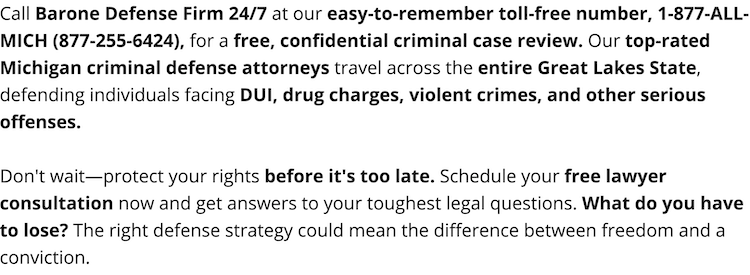What is Plea Bargaining in The Federal Criminal Law System?
A plea bargain in the federal system usually arises at the conclusion of plea negotiations between your attorney and the AUSA. The law specifically bans a federal judge from participating in the plea-bargaining process. An example of a plea bargain that might occur when a defendant is charged in a multi-count indictment consists of the government agreeing to dismiss several counts in exchange for a guilty plea to just one or two.
The plea bargain itself, called a "Rule 11" plea in the Federal Criminal Justice system, will be memorialized in a written document setting forth the exact nature of the charge(s) to which the defendant will plea and a recitation of the sentencing guidelines involved in that plea. This term refers to and is controlled by Rule 11 of the Federal Rules of Criminal Procedure.
Plea negotiations also might include a discussion about the terms and conditions of the appropriate sentence. As part of a plea agreement, there may also be a secondary agreement about charges that are possible but that the government agrees will not be filed. The plea agreement should outline the totality of the agreement between you and the government as to the resolution of the case. Issues such as criminal tax liability, fines, and penalties can be discussed in plea negotiations.
Why Would the Government Offer a Plea?
There are many reasons the government might enter into a plea agreement with you. There are many factors that go into the negotiations, including an assessment by the AUSA and your lawyer about the strengths and weakness of your case. The government might also be willing to reduce or dismiss charges in exchange for your cooperation in an ongoing investigation against another person or entity. In these instances, the government will assess the relative value of the information you can provide. The reduction in charges usually depends on the government's assumption that you have both the capacity and willingness to help the government prosecute someone they otherwise might not be able to prosecute.
Sometimes the government will offer you a plea bargain simply as a way of resolving the case for the sake of judicial efficiency and to thereby expedite the resolution of the case. Judicial economy and avoiding blocking the court system with excessively long trials is oftentimes one of the motivating factors which would precipitate the government making such a plea offer. Additionally, a defendant might feel less stress knowing the case is ending with the plea deal rather than being exposed to the risks associated with trial.
What Specifically is a Rule 11 Plea?
As indicated above, Rule 11 is the number of a rule in the Federal Rules of Criminal Procedure. Rule 11 outlines several standards applicable to plea bargains. The Rule 11 plea agreement, which is a written deal entered into between the defendant and the government, will detail completely each term of the agreement entered into between the defendant and the government. The deal must be reviewed and approved by the U.S District Court judge presiding over the case. This judge must "sign off" or agree to the Rule 11 plea. If the judge does not approve of the agreement, then this may cause rejection of the agreement or an amendment of the agreement. As stated earlier the federal rules prohibit the judge from participating in the plea negotiation process but they do allow the judge to reject a proposed resolution if the judge has some reason to do so.
The biggest issue in most plea agreements is the computation of the applicable Federal sentencing guidelines. The guidelines are essentially a statutory standard that provides recommendations to determine what a particular defendant faces in terms of a custodial sentence in the event of a plea of guilty. The guideline manual is extremely extensive and has numerous factors to be considered in the computation.
If both parties, meaning the defendant and the government, agree as to the guideline range, then they can put this into the Rule 11 plea agreement. However, it is most common for the parties to agree to allow the court to determine the guidelines. The whole issue of sentence guideline calculations is less of a problem now that the guidelines are recommendations rather than mandatory requirements which was once the case. (Please note that the sentencing guidelines are discussed in greater detail in another article in this series).
Nevertheless, if the judge determines that the defendant should be sentenced outside the guideline calculation agreed to by the two parties, then the judge will allow the defendant to withdraw his or her guilty plea. Then, the defendant and the prosecutor will go back to the table to negotiate or proceed to trial to resolve the matter.
What Happens at a Plea Hearing?
Once you have entered into an agreement with the government to resolve your case by virtue of a Rule 11 plea, and this decision has been communicated to the court, the court will schedule a hearing for the taking of the plea. At this hearing, the court will engage in a lengthy discussion with you to confirm your understanding of the agreement. Some judges also have plea forms that run 13 or 14 pages and address every conceivable issue, such as the effect on your immigration status, the effect on probation or parole that you may presently be on and the effect on your ability to hold office again in the future.
<< Back to the main Federal Criminal Law page || Next Page >>
 Barone Defense Firm Home
Barone Defense Firm Home
















